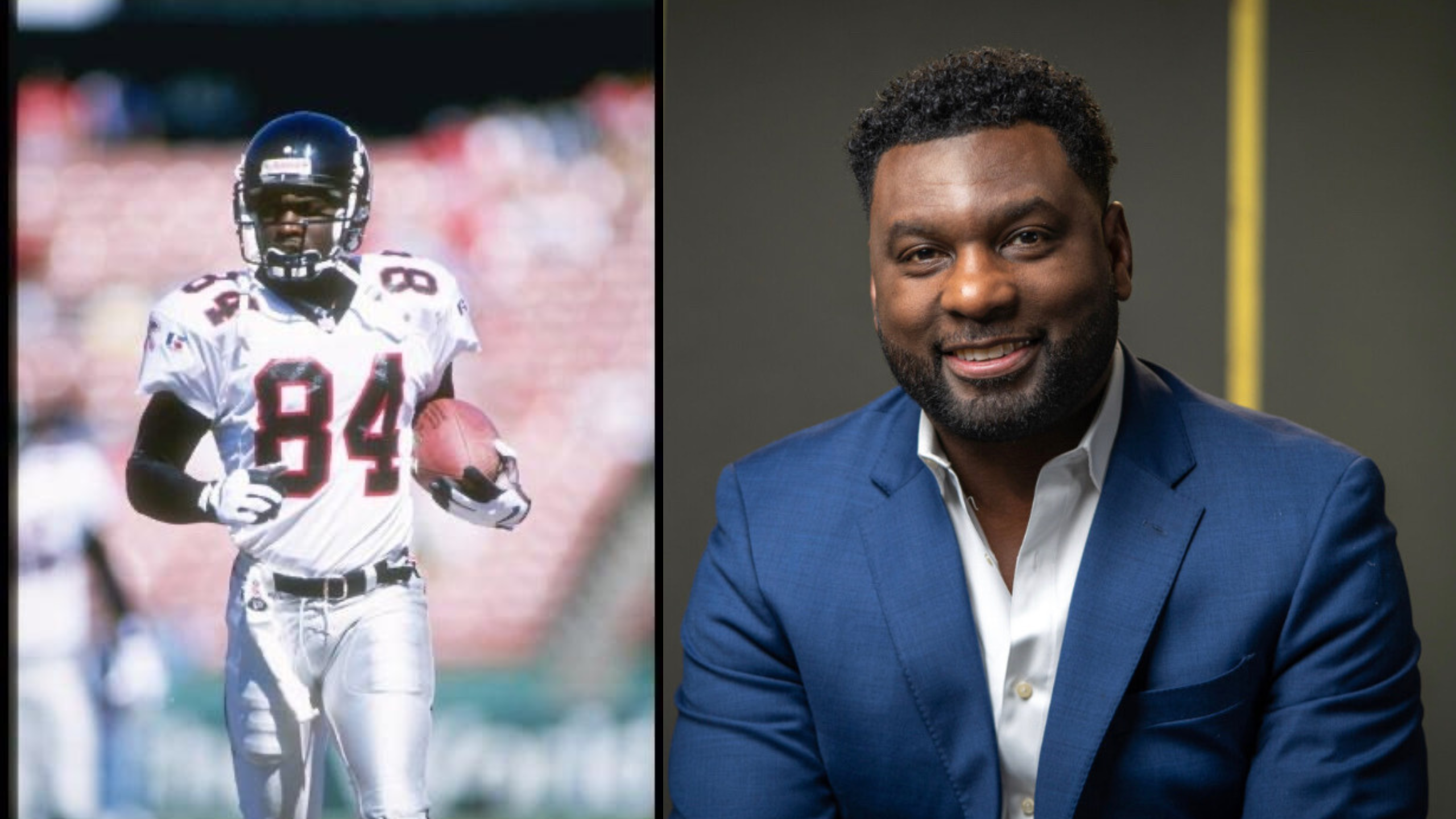
In the next profile of this series, Freddie discusses the challenges of transition from the NFL and the importance of peer-to-peer coaching.
The NFL Transition Coach program uses a peer-to-peer coaching model that empowers trained NFL Legends to offer structured guidance and support to players transitioning out of the NFL. NFL Total Wellness provides Transition Coaches with at least 70 hours of training to equip them with the skills necessary for effective relationship building, crisis management, and coordination of care. This interview series briefly profiles the coaches who assist players as they navigate the unique challenges of life after the game.
Freddie Scott II was a wide receiver for the Atlanta Falcons and the Indianapolis Colts. He is now a speaker and the founder and president of Unlock the Champion, an organization dedicated to empowering men as family figures. Freddie has been a Transition Coach since 2012. In this profile, Freddie discusses the challenges of transition from the NFL and the importance of peer-to-peer coaching. We have drafted a narrative based on a small section of Freddie’s responses to three important questions.
"I see our role as more like a lifeguard. We're not a counselor, we’re not a clinician, we're not diagnosing anything. We're simply a bridge to support. As a peer, we see ourselves as someone that’s going to walk with you through this process and connect you to the experts and to the programs that are in place to help you with that particular issue."
Freddie shares that his approach as a Transition Coach is to help empower players to think creatively, explore different options, improve decision-making skills, and continuously reevaluate after making a decision. Freddie recognizes the unique role of a Transition Coach as an added layer of support to educate and guide a player when necessary.
"The initial process is to assess the severity of what they’re going through and connect them to the program's partners or resources that are already in place, whether it’s through NFL Player Engagement, the Trust, Player Care Foundation, or Professional Athletes Foundation (PAF). Is there a program, partner, or resource that can help them with their specific issue?"
Taking a solution-focused approach, Freddie’s coaching style is to first assess for need and provide the necessary tangible support for the player. He emphasizes the importance of assisting the player with understanding their current situation. Freddie also highlights the importance of being present for the player and creating a manageable plan for checking in and follow-up; for some, the check-ins may be more frequent than others.
"You've been given a schedule in the NFL: you know what you're going to do, where you are going to eat, what time you going to report, what your day was going to look like, what your year is going to look like. Now, you don't have anyone telling you to get up and do anything…"
After fulfilling a lifelong dream to play in the NFL, for some, pivoting toward new or unfamiliar goals can be extremely difficult and come with many challenges. Freddie suggests that some of the common challenges among transitioning players include loss of identity, purpose, structure, and time management. He notes that these stressors can compound, and the player must now learn to navigate these challenges, sometimes with little support or guidance. Freddie enjoys having the opportunity to reinforce and affirm players at this stage, and wants to be a critical part of helping them rediscover their passions and increase their confidence.
